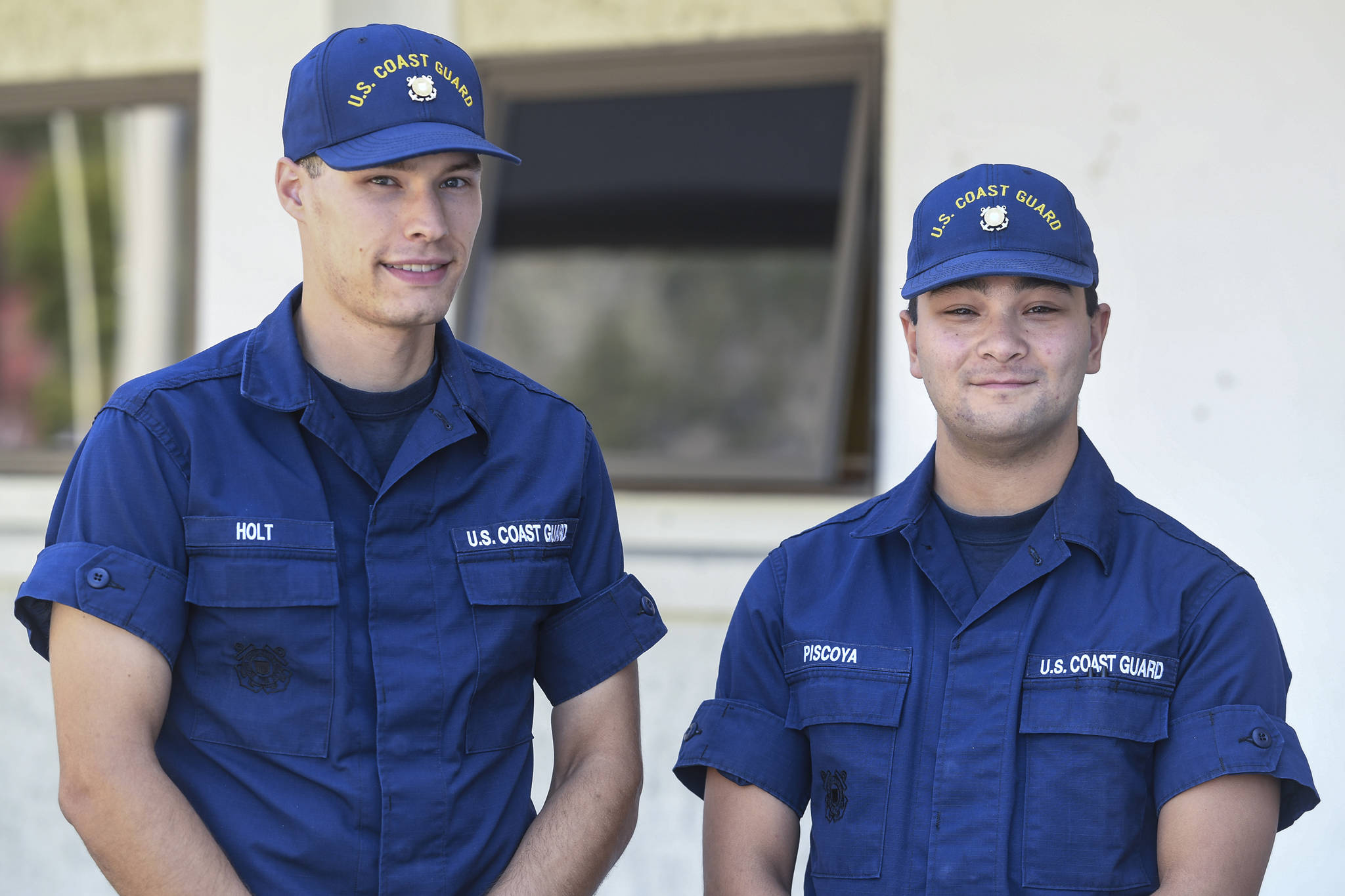Logan Holt and Daniel Piscoya are the first Alaskans to go through the Coast Guard’s College Student Pre-Commissioning Initiative.
The scholarship program offers college students two years of tuition for attending boot camp. After graduating college, students are commissioned as officers.
“I signed up for this program because it’s such a great opportunity. It’s not every day you get to enlist in a service and have officer candidate school guaranteed,” said Piscoya, who moved to Juneau for college. “I like that idea. You get the perspective of being enlisted before going to OCS.”
Most branches of the armed forces will send enlisted recruits to boot camps and officer candidates to various commissioning programs, but no other program sends candidates to both, said Chief Petty Officer Colin Rankin, a recruiter for the U.S. Coast Guard.
“Having to go to boot camp is a great benefit,” Rankin said. “It definitely builds leadership skills, and it builds confidence.”
Coast Guard boot camp is eight weeks long and takes place in Cape May, New Jersey. The idea of boot camp is to take raw recruits and teach them to think as members of the larger whole, Rankin said. The training also covers the basics of discipline, history of the service, ranks, swimming, physical fitness, firefighting and seamanship.
“It was the most fun experience I never want to do again,” Piscoya said.
“It was really hot,” added Holt, who is from Juneau.
Both Piscoya and Holt are no strangers to the water. Piscoya is a member of the Nome Eskimo Community and Holt has worked as a fisherman. Rankin said their experiences put them above and beyond regular officer candidates, who come from all walks of life.
“I believe that spending time on the water and being familiar with it definitely helps,” Holt said. “I think having a good idea how the maritime community works is beneficial.”
Piscoya, with his family background, comes at it from a different direction.
“I think that part of my culture as an Inukiak is linked to being at home on the water,” Piscoya said.
Both future officers are ready to go where the Coast Guard sends them next and are currently assigned to Coast Guard Station Juneau, where they’re learning the basics of watchstanding. Piscoya will attend the 17-week officer candidate school in New London, Connecticut, in several months. Holt will spend the next two years in Alaska, finishing a degree in business management from the University of Alaska Southeast, before attending OCS himself.
After that, both intend to return to Alaska as they can.
“Alaska’s my home,” Piscoya said. “I’m probably going to spend a good deal of time away from Alaska, but I’m planning on coming back.”
• Contact reporter Michael S. Lockett at 523-2271 or mlockett@juneauempire.com.

